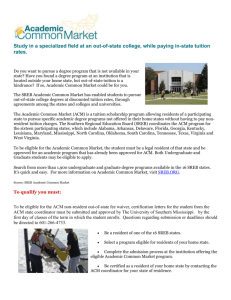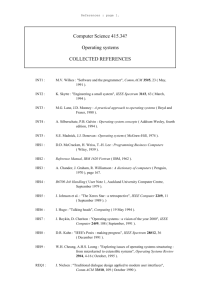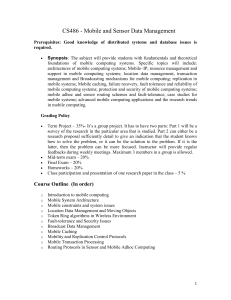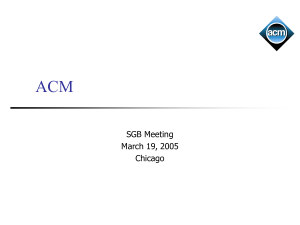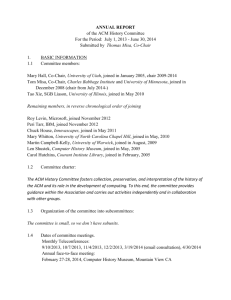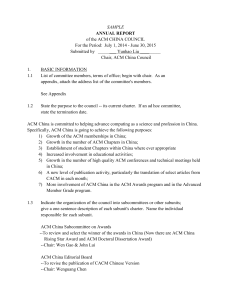Click here to get the file
advertisement
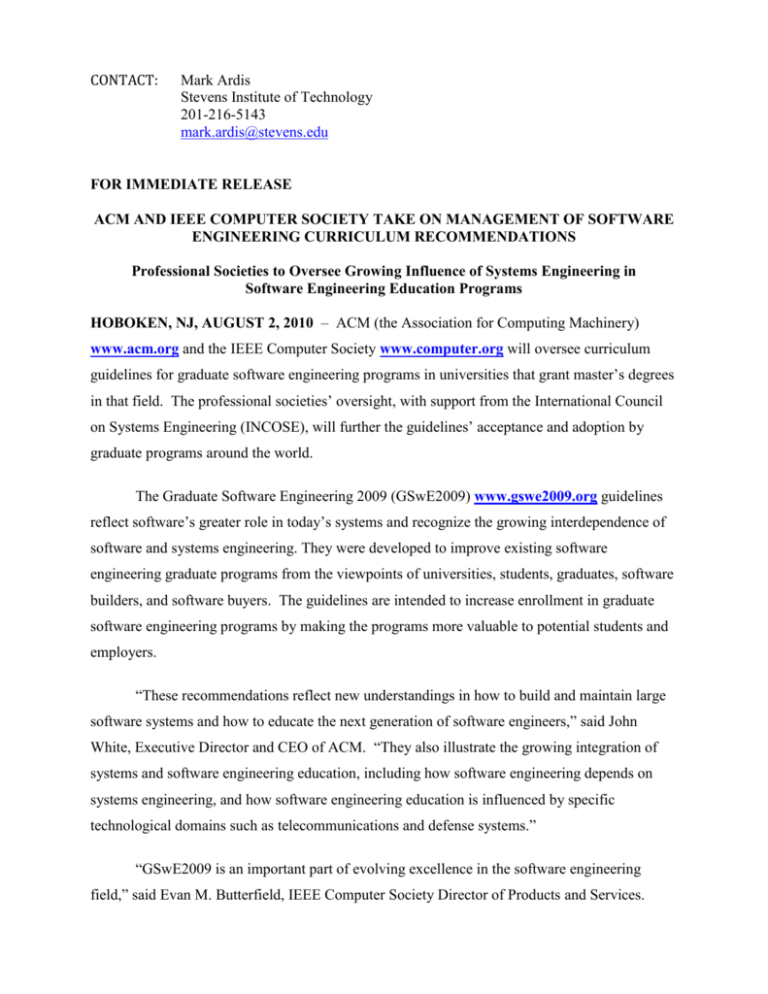
CONTACT: Mark Ardis Stevens Institute of Technology 201-216-5143 mark.ardis@stevens.edu FOR IMMEDIATE RELEASE ACM AND IEEE COMPUTER SOCIETY TAKE ON MANAGEMENT OF SOFTWARE ENGINEERING CURRICULUM RECOMMENDATIONS Professional Societies to Oversee Growing Influence of Systems Engineering in Software Engineering Education Programs HOBOKEN, NJ, AUGUST 2, 2010 – ACM (the Association for Computing Machinery) www.acm.org and the IEEE Computer Society www.computer.org will oversee curriculum guidelines for graduate software engineering programs in universities that grant master’s degrees in that field. The professional societies’ oversight, with support from the International Council on Systems Engineering (INCOSE), will further the guidelines’ acceptance and adoption by graduate programs around the world. The Graduate Software Engineering 2009 (GSwE2009) www.gswe2009.org guidelines reflect software’s greater role in today’s systems and recognize the growing interdependence of software and systems engineering. They were developed to improve existing software engineering graduate programs from the viewpoints of universities, students, graduates, software builders, and software buyers. The guidelines are intended to increase enrollment in graduate software engineering programs by making the programs more valuable to potential students and employers. “These recommendations reflect new understandings in how to build and maintain large software systems and how to educate the next generation of software engineers,” said John White, Executive Director and CEO of ACM. “They also illustrate the growing integration of systems and software engineering education, including how software engineering depends on systems engineering, and how software engineering education is influenced by specific technological domains such as telecommunications and defense systems.” “GSwE2009 is an important part of evolving excellence in the software engineering field,” said Evan M. Butterfield, IEEE Computer Society Director of Products and Services. “Our volunteers and staff couldn’t be more enthusiastic about this relationship, and the opportunity to help ensure the integrity and consistent improvement of the profession.” The guidelines will foster formation of new graduate programs in software engineering by providing guiding principles for curriculum content and advice on how to implement those guidelines. Published in late 2009, the guidelines are now part of the Computing Curricula series to be updated and maintained by ACM and the Computer Society. INCOSE’s key role integrating systems engineering into GSwE2009 will continue as the guidelines evolve. Dr. Art Pyster of the Stevens Institute of Technology and INCOSE’s Director for Academic Matters oversaw GSwE2009 development. The two-year project included participation by more than 40 experts from academia, industry, government, and professional societies. Together with GSwE2009, the author team created two companion reports (also available at www.gswe2009.org): Comparisons of GSwE2009 to Current Graduate Programs in Software Engineering and Frequently Asked Questions on Implementing GSwE2009. Project funding was provided by the U.S. Department of Defense, Office of the Director, Defense Research and Engineering (DDR&E). Kristen Baldwin, now the Director of Systems Analysis in DDR&E, was the original GSwE2009 sponsor. “Our nation has a critical shortfall of mid- to upper-tier software engineers,” said Baldwin, who wants to aid the broad adoption of GSwE2009. “Setting the foundation and competencies for software engineering education is a key element of our human capital strategy.” To achieve their objective, the software engineering education experts used baselines of current software engineering master’s programs, public reviews to collect comments from the wider software engineering community, and participation of software engineering stakeholders from industry, government, and academia. ###





